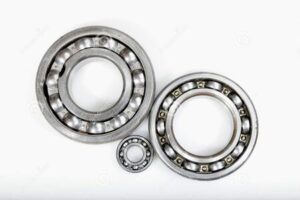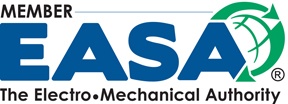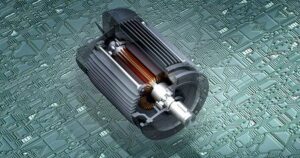Where Should I Buy My Electric Motors?
June 12, 2018
In today’s day and age you can put any motor part or catalog number into an internet search engine and come back with numerous places to purchase the unit. Being that the maintenance world tends to be on the reactive side of purchasing this makes it easy to get your hand on a product right away. Is this always the best way to purchase a motor? Is buying from the company you buy your bearings from a good idea? Maybe you are getting a chance to buy directly from the manufacturer? Or should you purchase from an EASA shop (Electrical Apparatus Repair Association) that is repairing your motors? All of these options have pro and cons when it comes to buying.
Buying Motors Online

When you are in desperate need for a motor and you want to find something immediately, being able to put a number into a search engine and have something come back instantly is great… but what are you getting if you purchase online? Is it used? What kind of warranty does it come with? If it comes with a Warranty, how would it be administered if the unit failed? Where is it shipping from? You could also come across a product that has been discontinued and the unit you are purchasing may not be what you are looking for? How long has it been on the shelf? How do you know it isn’t a scam? Ok…Not every internet seller is going to be out to get you! People buy motors online everyday but make sure you know what you are getting yourself into before you “checkout”.
Buying Motors from a PT/Bearing Company

Almost every bearing/sleeve/pulley supplier or PT (Power Transmission) House has access to manufactures of motors. I am sure you have priced these motors against buying from your EASA repair shop and the price may even be better, but is the lowest price always the best option? Many PT houses are large organization, much larger than most EASA shops which means they will get better pricing, heck they probably have locations all over the US that makes their purchasing power even better.
The questions is do they know what they are selling you? Are they putting catalogs on your desk and want you to tell them what you need? Do they properly know how to size motors or engineer a system? Do they have an engineers onsite to help with technical questions or do you have to wait for them to contact someone at the manufacture? Will they come onsite and look over the application to make sure the motor you have in use is actually the correct unit? What if you need modifications done, who are they sending the unit too? If it isn’t an EASA shop you may have issues with warranty. If you are consistently buying the same “cataloged” item and price is what is most important when it comes to the motors you purchase then PT houses may be a good option for you to buy your motors from.
NOTE: Did you also know that if a motor you bought from a PT house fails while under warranty it will have to go to an EASA repair shop to get looked at? 9/10 times it will not go back to a manufacturer, it will go to a third party EASA shop who didn’t sell you the motor.
Buying Motors from an EASA Repair Shop

Not all EASA shops are created equal and not all EASA shops have access to the same manufacturers. Does the EASA shop you currently buy from know what specs (if you have any) to purchase based on? How many options are they giving you to look? Are they only selling you what they have on their shelf? Do they have people on staff with the knowledge to cross over motors that may not be a standard NEMA “T” frame? As an EASA shop most are going to be approved to do modifications and warranty evaluations on motors without voiding any warranty. EASA is regularly looked at by manufacturers as one of their primary distribution channels so pricing from EASA shops can be very competitive. Also, If you purchase from EASA shops they most likely are approved to handle warranties which helps to make any warranty situations much more seamless then getting a third party repairer involved..
Buying Direct from the Manufacturer

You may also be approached to buy directly from a motor manufacturer and thinking this could be a great idea to cut out an additional cost since you won’t have to go through a distributor. This isn’t always a bad thing but it can cause some delays depending on the amount of customer service they can provide. A lot of MFG’s have you send inquiries into a generic email box and your request will fall in line with how it was received. If the situation isn’t an emergency this may not cause an issue, but what if you are in a breakdown situation, do you have someone you can call directly? Who is going to set up the expedited freight service if this MFG does not have one? Are they going to keep inventory on hand for you or are you going to have to wait for their next production of units? Do they have people locally that can come out and help with the install and alignment or are you paying to have someone come from another state? Also, buying from a manufacturer directly may not even save you money! Many manufacturers give very good buying prices to distributors. They give a different price to end users, knowing that you would normally buy from a distributor. This allows them to make more money on your sale and you loose the personal touch benefit of a distributor.
Conclusion
Purchasing from any of the options above will have their pros and cons you just have to decide which one will work best for your company and give you the service you need to keep your machines running.
Posted in Product Sales
